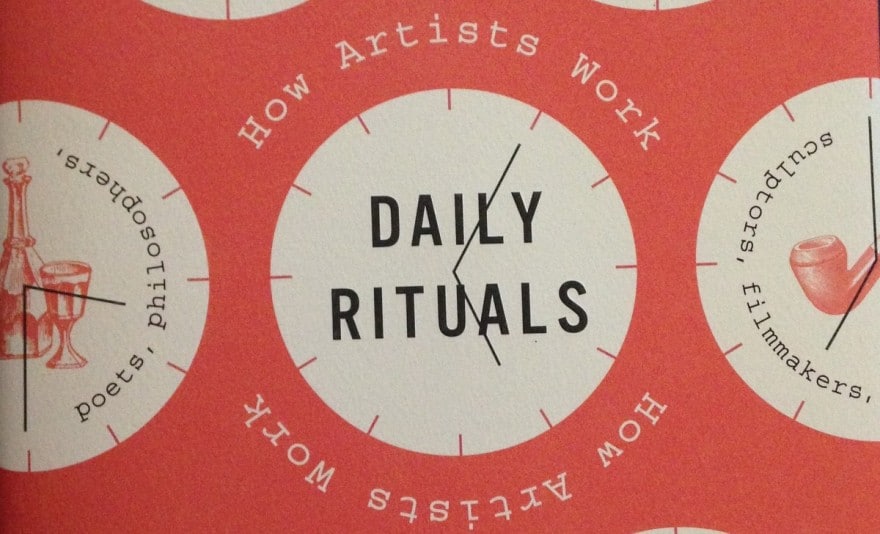
Did you know Nikola Tesla drew his blinds so he could work in the dark? Or that Andy Warhol carried art to give to fans he might meet on the street? Those stories are from Mason Currey’s book, Daily Rituals in which Curry has compiled the daily routines from some of history’s greatest creatives.
Many other figures from the book have more practical habits. We know that Benjamin Franklin and Isaac Newton were rigorous note takers. The Roman philosopher Seneca pondered why men were so frugal with their possessions but lax with their time. Questions about productivity have bounced around for hundreds of years.
It’s a reminder that we don’t need new apps, hacks, or tips to be more productive. You can always revisit your own habits – here are six places to start courtesy of Daily Habits.
1. Have a habit for your workday.
The book is built on the biggest idea of all – that some of the best writers, scientists, and explorers had habits. Whether it’s going to the same room or writing in the same way, many creatives do things the same way. William James said we build habits to, “free our minds to advance to really interesting fields of action.” Science has proved him right with the research on decision fatigue.
2. Wake, work, break.
No matter what time the people in the book rise – night owl or morning bird – they all follow the same pattern. Wake, work, break. There may be a bit of time for coffee or a bath during the wake portion of the day, but nearly all of the creatives follow this habit. Current research has supported these colloquial patterns. Duke psychologist Dan Ariely says that our brains are at their best during the 3-4 hours after we wake up. It also aligns with Five Proven Ways To Have a Better Work Day.
3. Take a break.
While we all understand that it means to wake and work, many of us don’t take a break. We must. Sigmund Freud walked on his breaks. Other creatives played games, saw guests, or dined with friends. Mike Vardy did a podcast episode with Dave Caolo about how they use games as a break from the work.
4. Always collect ideas.
A prime time for collecting ideas is while on those breaks. Life is full of examples of people who collected spare ideas while not actively working or trying to be productive.
- Beethoven walked about with scraps of paper in his pocket so he could jot down any melodies that came to mind.
- Soren Kierkegaard would rush into his house to write down a note while still wearing his hat and holding his umbrella.
- Ryan Holiday mentions almost exactly the same thing, saying he will run into his house and yell, “don’t talk to me, I need to write this down.”
- J.K. Rowling created Harry Potter on the back of a napkin while she waited for her train to depart.
5. Examine and treat your distractions.
We all have distractions, but the people in the book all found ways to deal with them. William Faulkner for example, once found himself working in a room with a door that lacked a lock. He did what anyone would do, he removed the knob entirely. Charles Dickens went the opposite route and added – an entire door – rather than remove. We face the same challenges only our door is digital. We can follow in Faulkner’s footsteps though and turn off notifications.
6. Take small steps.
A smaller idea that circulates among the modern writers is that little bits add up. The adage is that “Rome wasn’t built in a day” and it’s a lesson to internalize just that. Joyce Carol Oates praises these small steps, “if I retain only a single page from a full day’s work, it is a single page, and these pages add up.” Great work is done a day at time.
That’s six tips from over 160 people, but what did they miss? What ritual do you have that wasn’t included?
Comment below, and we’ll send one randomly selected commentator their own copy of Daily Rituals.